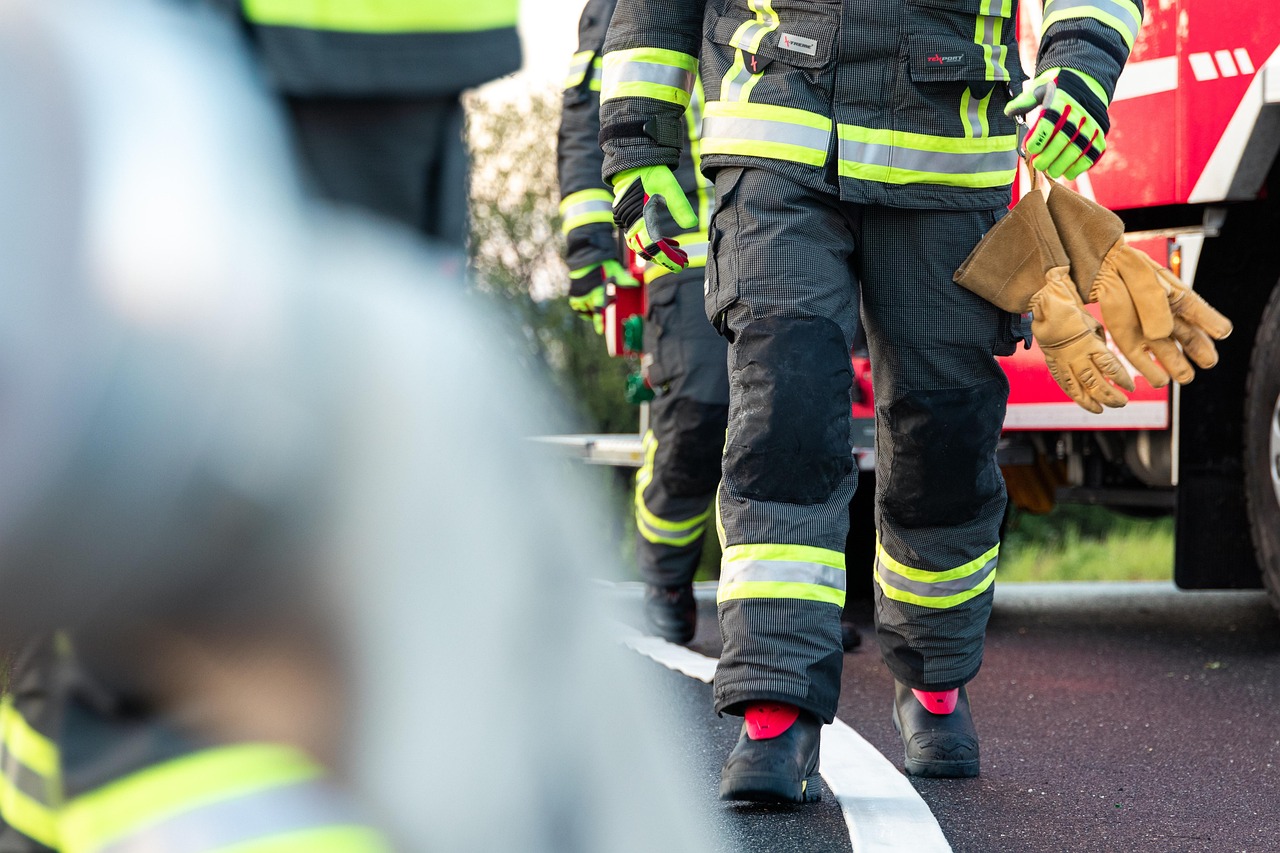
August 15, 2025
From Portugal’s Bombeiros to the UK: Could volunteers do more?
Dr Lígia Teixeira
The air in the Terra Quente region of northeast Portugal — literally “hot land”, and where I was born and grew up — hangs heavy in summer, thick with the sound of cicadas. Then the sirens come. High and urgent, cutting through the heat. A flash of red on the road — the Bombeiros (firefighters), racing towards a wildfire. You can often smell the smoke before you see it, the landscape shimmering in the distance.
It’s a scene that plays out more often now, as hotter summers feed more frequent and ferocious blazes. And every year, it reminds me of something fundamental: when the danger is clear and present, humans are capable of extraordinary collective action. Within minutes, the trucks are on scene, hoses uncoiled, teams moving in sync. Decisions made without hesitation.
And yet, we don’t mobilise this way for the dangers that creep in slowly.
Psychologists call it the “boiling frog” problem. The image is deceptively simple: drop a frog in boiling water and it will leap out immediately; heat the water slowly and it won’t realise the danger until it’s too late. Whether or not the biology holds up, the metaphor resonates because it mirrors our own blind spots. We leap into action when danger crashes through the door. But when it seeps under the threshold — a degree hotter each day — our urgency fades, often until the damage is irreversible.
Homelessness is one of those slow-burn crises. The danger to people’s health, safety, and dignity is just as real as a flood or fire — but it builds quietly: a missed rent payment here, a relationship breakdown there, months of waiting for support. And right now, in England alone, the water is perilously close to boiling over. Over 164,000 children are currently living in temporary accommodation — the highest figure since records began. Councils are spending more than £2 billion a year on emergency housing, yet still can’t keep up with demand. Families can be placed hundreds of miles from schools, jobs, and support networks. This isn’t just hardship — it’s harm that compounds over a lifetime.
Here’s another striking thing.
More than 80% of the Bombeiros in Portugal are unpaid volunteers. Not casual helpers — highly trained specialists. Each new recruit completes over 250 hours of training before wearing the uniform. Once qualified, they operate to the same professional standards as their salaried colleagues, using the same equipment, dispatched through the same control rooms.
It’s proof that community and professionalism are not opposites. They can — and do — go hand in hand.
This isn’t about replacing professional crews. It’s about making the best use of all the human talent a community has to offer. In a time when budgets are tight and needs are rising, perhaps the best innovations are in finding more ways to trust people to step into roles that matter most. The Bombeiros have shown how volunteers can be trained, trusted, and fully embedded — not just in firefighting, but across essential services where local presence truly matters, especially in rural areas. Their example offers a compelling alternative vision to what’s happening elsewhere — where cherished local services like the Samaritans are being centralised, risking the loss of connection and trust that makes early help effective.
We could bring that same principle to homelessness — mobilising with the same urgency and skill, and building volunteer networks that do more than respond, but prevent crises before they escalate. It’s why we’re testing approaches like Citadel in locations across the UK — where trained local “navigators” work alongside statutory services to identify risks early and connect people to the right help before crisis hits. Alongside this, we’re supporting local areas through Accelerator initiatives in London, Greater Manchester, and Liverpool – helping communities organise homelessness efforts with the same urgency, coordination, and accountability as an emergency service. In Edinburgh, we’re working with the City Council to strengthen its housing emergency response, using evidence and data to act faster and effectively when pressures spike.
The evidence is clear: when you treat prevention like a first response — with trained people, integrated systems, and rapid decision-making — you don’t just save money, you save lives and futures.
Every summer, the sirens in the Terra Quente remind me what we can do when we see danger for what it is. The challenge — and the opportunity — is to treat homelessness the same way: not as an inevitable social ill, but as a preventable emergency. The question is whether we will act now — while the water is still heating — or wait until it boils over.




